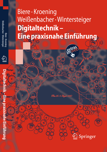Publications
Software
Teaching
Bachelor
Master
Team
[ news | requirements | schedule | Projects | Links ]
Advanced Topics in Applied Systemtheory (KV)
Debugging
Sommer Semester 2007
News
Presentation schedule:
| 19.6.2007 | Praxmarer, Lichtberger, Neuer, Hochrieser |
| 26.6.2007 | Schwaighofer, Vida, Zwirchmayr |
Primer on presentations.
Threading slides, deadlock.c, and debugdeadlock.c.
Profiling slides available here.
Memory debugging slides available here.
Symbolic debugging slides available here.
Source code for the test case (debugged on April 17) with ebddres available here.
QBF and SMV slides available here.
Set of test QBF formulas available here.
First Meeting is on March 13.
Project Assignments
Delta Debuggers
| Programmer | Target Language | Implementation Language |
|---|---|---|
| Peter Praxmarer | QBF | C++ |
| Wilhelm Lichtberger | QBF | C |
| Hanno Neuer | QBF | Java |
Paper Presentations
| Presenter | Topic | Slides |
|---|---|---|
| Arnold Schwaighofer | Paper 1 | slides |
| Marlene Hochrieser | Paper 9 | slides |
| Andreas Vida | Paper 7 | slides |
| Jakob Zwirchmayr | Paper 5 | slides |
Requirements
In order to pass the course, you are required to take part in the lectures and present a project. The project is either a small programming assignment or presentation of a scientific publication. Precise project assignments below.Schedule
We meet regularly on Tuesday from 17:15 to 18:45 in room T211.
| 13.3.2007 | Testing |
| 20.3.2007 | Delta Debugging |
| 27.3.2007 | SMV and QBF |
| 17.4.2007 | Symbolic Debugging |
| 24.4.2007 | Memory Debugging |
| 8.5.2007 | Profiling |
| 22.5.2007 | Thread Debugging |
| 5.6.2007 | Project Presentation I |
| 12.6.2007 | Project Presentation II |
| 19.6.2007 | Project Presentation III |
| 26.6.2007 | Project Presentation IV |
Projects
Programming exercises
The programming assignment is to write a delta debugger for either the SMV of QBF file format. SMV is a model checker input language and QBF stands for Quanfitied Boolean Formula. Both formats are presented in sufficient detail on 27.3.2007.You can freely choose the programming language you implement the debugger in (unless someone else has already chosen it).
Paper presentations
Below is a list of papers / links that can be chosen for presentation followed by the chapter of the book to which the material relates. The book chapter can and should be used as supporting material.- Claessen, K. QuickCheck: A Lightweight Tool for Random Testing of Haskell Programs, (Book chapter 5,13)
- Tip, F. A survey of program slicing techniques. Journal of programming languages 3(3), (Book chapter 7)
- Chelf, B. Squashing bugs at the source, Linux Magazine 55, (Book chapter 7)
- Zhang, X. and Gupta, R. Cost-effective Dynamic program slicing, (Book chapter 9)
- Design by contract: Eiffel, (Book chapter 10)
- Z Programming language, (Book chapter 10)
- SPEC#, (Book chapter 10)
- Ernst, M.D. et al. Dynamically discovering likely program invariants to support program evolution. IEEE Transactions of Software Engineering, (Daikon project, presented in detail in book chapter 11)
- Choi J.-D., and Zeller A. Isolating failure-inducing thread schedules, Proceerings of the international symposium on software testing and analysis (ISSTA), (Book chapter 13)
- Zimmermann, T. and Zeller A. Visualizing Memory Graphs, Proceedings of the international Dagstuhl seminar on software visualization (LNCS 2269), (Book chapter 14)
- They write the right stuff, (Book chapter 15)
Links
Why Programs fail. A guide to systematic debugging. Andreas Zeller. Morgan Kaufmann, 2005.
Table of contents available from Amazon.
Jerry J. Harrow: Runtime Checking of Multithreaded Applications with Visual Threads.
S. Savage, M. Burrows, G. Nelson, P. Sobalvarro, and T. Anderson: Eraser: A Dynamic Data Race Detector for Multithreaded Programs.

